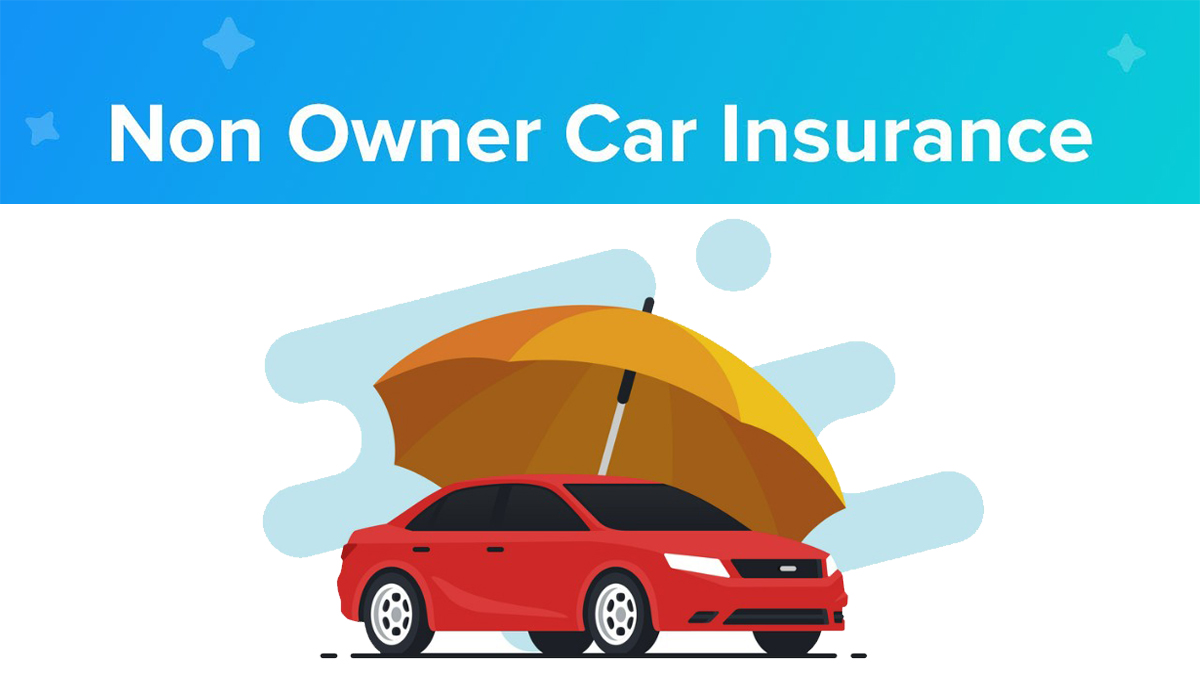Even if you have a driver’s license but no auto insurance, you can still require it. Sounds odd, right? Think about this. You may want liability insurance if you frequently borrow or rent cars so that your money and other assets, such as your home, are protected. Non-owner car insurance can help in this situation.

Additionally, it can help you if your state needs an SR-22 (or FR-44) form. Or if you are stuck between two moving vehicles. Non-owner auto insurance is a plan for those who don’t own a vehicle. But they require some liability protection in case they borrow or rent one from someone else.
Non-owner auto insurance is liability coverage for people who need auto insurance but don’t own a car. Such as those who frequently rent automobiles or those who must provide proof of auto insurance (such as an SR-22). If you cause an automobile accident, liability coverage covers the harm and losses to other people.
For instance, non-owner auto insurance may cover the victim’s medical costs if you cause an accident and they are injured. In general, non-owner auto insurance is less expensive than comparable coverage for a vehicle you own.
Who Should Get Non-Owner Car Insurance?
There are a few reasons you should opt for non-owner car insurance. They include;
- If you frequently rent vehicles.
- You frequently rent other people’s vehicles.
- You want to avoid a coverage gap in your car insurance.
- Your state law asks you to file an SR-22 form.
Who Offers Non-Owner Car Insurance?
The majority of auto insurance firms do not promote the fact that they supply non-owner auto insurance. And some may only provide non-owner auto insurance to current clients. For instance, we looked at a Progressive Insurance policy that states that non-owner auto insurance is not offered when a new policy is purchased.
But it is offered to current customers who opt to remove all of their vehicles from the policy. For instance, if you have a Progressive policy but sell your automobile, you might be able to keep your auto insurance by selecting the non-owners endorsement. Check below for those that offer non-owner car insurance.
- Farmers Insurance
- Nationwide
- Travelers
- Progressive
- USAA
- Liberty Mutual
- State Farm
- Geico
What Does Non-Owner Car Insurance Cover?
Although non-owner auto insurance coverage varies by the provider, it often includes liability coverage for property damage and physical injury.
Bodily injury
If you cause an accident and the other driver or their passengers get injuries, this will pay for their medical bills.
Property damage
If you cause an accident that damages someone else’s property. Such as their car, fence, home, or other physical structure, this will pay for the necessary repairs or replacements.
The minimum auto insurance standards established by each state are often met by non-owner insurance limits. For instance, drivers in California are required to have liability insurance that pays up to $15,000 in bodily injury per person. $30,000 in accidents, and $10,000 in property damage.
As a result, a standard non-owner insurance policy offered in that state will probably include the same minimal amount of protection, while drivers have the option to buy more.
How to Apply for Non-Owner Car Insurance
Most significant insurers, including Geico, State Farm, and USAA, offer non-owner auto insurance. Not all insurers, it should be noted, permit customers to purchase non-owners’ policies online. If you need one, you will probably need to call an agent or go to a nearby insurance agency.
You only need your driver’s license information and a credit or debit card to buy non-owner auto insurance coverage. The auto insurance provider of your choice can file an SR-22. Or other necessary state paperwork on your behalf if you need it. And you can nearly immediately receive proof of insurance by email.
Depending on where you live, a non-owner auto insurance policy may also include uninsured or underinsured motorist coverage (UM/UMI), medical payments coverage (MedPay), or personal injury protection (PIP).
